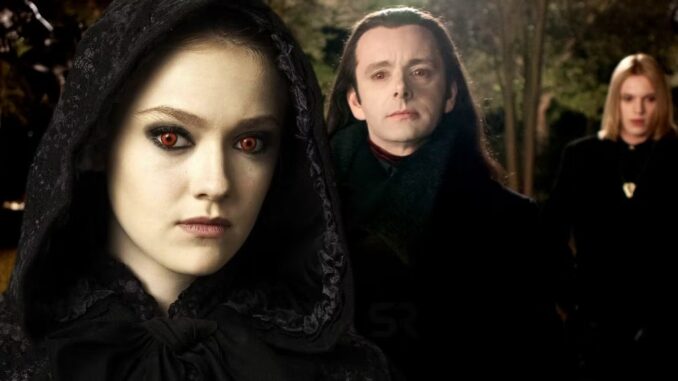
The Twilight universe is not safe from social hierarchies, and on the vampire side of it were the Volturi, whose intentions weren’t bad, though their methods were. In 2005, Stephenie Meyer shared her vision of vampires and werewolves in the novel Twilight, the first entry in a series of four books that chronicled the romance between vampire Edward Cullen and mortal Bella Swan. This relationship was quite problematic for many reasons, and they came across a couple of obstacles, as werewolf Jacob Black and the Volturi, a powerful coven of vampires.
In the Twilight world, humans, vampires, and werewolves co-existed, but not without some rules to ensure the safety of all of them. The Cullens, for example, weren’t allowed on Quileute territory, and the existence of vampires couldn’t be revealed to humans, something that Edward and his family didn’t really care about when welcoming Bella into their lives. Even among vampires, there were social hierarchies, and at the top of the pyramid were the Volturi, the equivalent of royalty. This coven made its first appearance in New Moon, when Edward was about to reveal himself to the human world under the sunlight, only to be stopped right on time by Bella. After that, the Volturi became a big shadow over the Cullen family and Bella, and their true purpose was revealed – and they were right.
The Volturi consists of five core members: Aro, Caius, Marcus, Sulpicia, and Athenodora, and their purpose was to keep vampires hidden from the human world, mostly for their safety. Being the most influential coven in the vampire world, they established various laws that all vampires were expected to obey or they would be punished (which more often than not meant being killed). These rules were that their hunts must be inconspicuous, immortal children must not be created, not deal with werewolves, false witnesses will be punished by death, hunting is forbidden in Volterra (the town where the Volturi reside), vampires shouldn’t draw attention in open sunlight, the creator is responsible for the newborn’s behavior and teaching, and vampires’ interaction with humans must not draw wide attention.

While the Volturi’s purpose of keeping their kind safe as well as protecting their laws and traditions is not bad, their methods are. The Volturi won’t hesitate on killing humans who represent a threat to their safety, nor immortal children and those responsible for them, which means they will kill other vampires if they want to. For example, Aro killed his younger sister (also a vampire) Didyme to prevent her husband, Marcus, from leaving the coven, as he found his powers to be much more useful than his sister’s. They also hunted werewolves to near extinction after Caius was almost killed by one in a fight. Taking all this into account, it’s not surprising the Volturi relationship opposed to Edward and Bella’s and pressured him into turning her into a vampire, though they took things to almost an extreme when Edward and Bella’s child, Renesmee, was born, as they saw her as a threat even though she wasn’t an immortal child.
The Volturi’s purpose was for the safety of their kind, as revealing themselves to humans wouldn’t have done any good to them. The problem was that they weren’t the best leaders, and didn’t hesitate on killing humans, vampires, and werewolves. By the end of the Twilight series, the Volturi fell from grace, and it’s unlikely they regained the trust of other vampires after the events in the final novel, Breaking Dawn.
